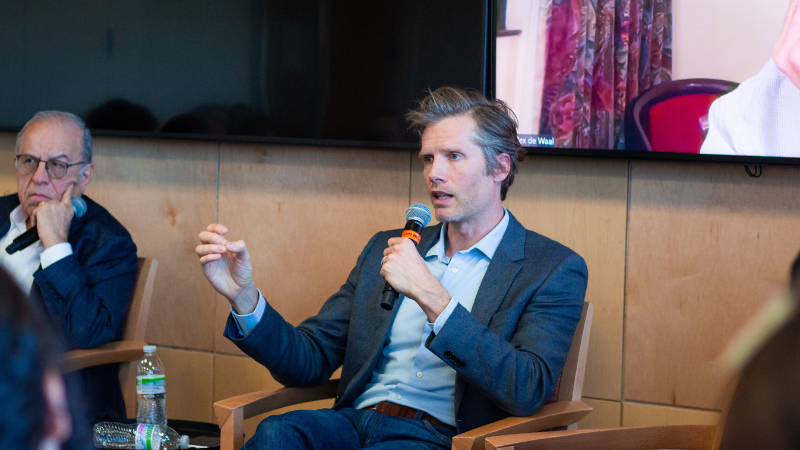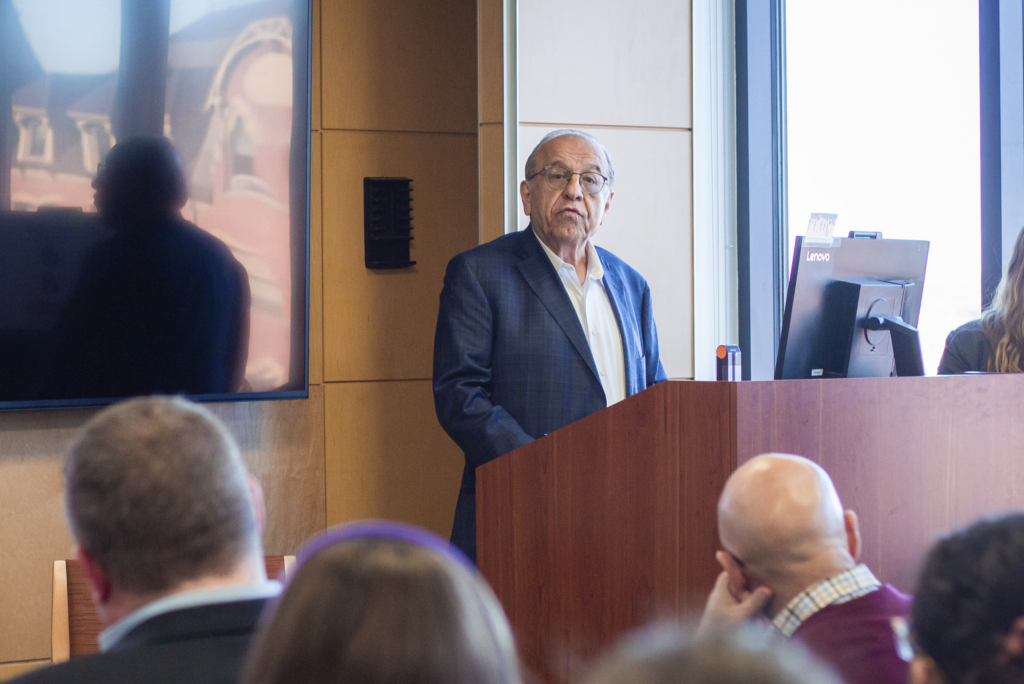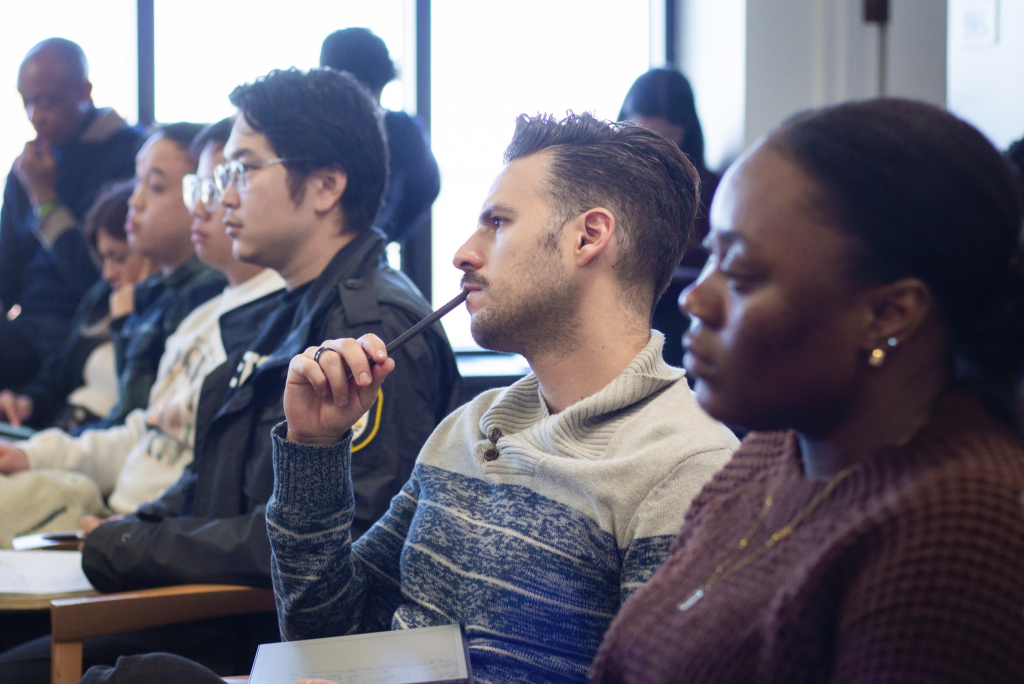
Reflections on ICC Arrest Warrants in the Context of Israel/Palestine
On November 25, 2024, the Fares Center and the World Peace Foundation co-hosted a panel discussion featuring Professors Alex de Waal, Tom Dannenbaum, and Nadim Rouhana. The panel focused on the International Criminal Court’s (ICC) recent arrest warrants issued in connection with the Israel-Hamas conflict. The event explored the implications of these warrants on international justice, diplomatic relations, and accountability, while also addressing the broader humanitarian crisis in Gaza. The discussion covered the legal basis of the ICC’s jurisdiction, the classification of starvation as a war crime, and the political and societal reactions to these developments.
This panel underscored the far-reaching legal, political, and humanitarian consequences of the ICC’s arrest warrants. Although the immediate enforcement of the warrants remains uncertain, they mark a significant milestone in the pursuit of international accountability, placing significant legal constraints on Israeli leadership. At the same time, reactions to the warrants have revealed deep political and ideological divisions, reinforcing competing narratives on the legitimacy of the ICC and the broader Israel-Palestine conflict.



Professor Alex de Waal began the discussion with an analysis of the legal and humanitarian aspects of starvation as a method of warfare, as defined under Article 8(2)(b)(xxv) of the Rome Statute. He underscored that intentional deprivation of essential resources, such as food, water, and medical care, constitutes a serious violation of international law. He then presented data from the Integrated Food Security Phase Classification (IPC) which indicated that 80% of northern Gaza’s population is experiencing emergency or catastrophic levels of food insecurity. He stressed that famine is not solely defined by food shortages, but also by the collapse of healthcare infrastructure, leading to mass deaths from disease and malnutrition-related complications.
Professor de Waal also highlighted Israel’s restrictions on humanitarian aid, warning that the deliberate withholding of life-sustaining resources could amount to a prosecutable war crime under ICC jurisdiction. He urged for independent food security assessments and immediate international intervention.
Professor Tom Dannenbaum then provided an in-depth analysis of the ICC’s jurisdiction, explaining that the court can only prosecute crimes committed within the territory of a state party or by its nationals, unless a case is referred to the court by the UN Security Council. He outlined the legal basis for the ICC’s investigation into Israel and Hamas, explaining that Palestine’s ratification of the Rome Statute in 2015 provided legal grounds for the ICC to investigate war crimes committed in Gaza and the West Bank. Professor Dannenbaum detailed the five arrest warrants issued by the ICC in May 2024:
- Hamas Leaders: Yahya Sinwar, Ismail Haniyeh, and Mohammed Daif, accused of war crimes including mass murder, hostage-taking, torture, and sexual violence.
- Israeli Leaders: Prime Minister Benjamin Netanyahu and Defense Minister Yoav Gallant, accused of starvation as a method of warfare and other crimes against humanity.
He emphasized that these arrest warrants do not expire, and that the 125 ICC member states are obligated to enforce them. Consequently, Netanyahu and Gallant now face significant restrictions on international travel, as they risk arrest in any ICC member country. Professor Dannenbaum also noted that the ICC’s legal actions could impact military aid agreements, as states may be compelled to reevaluate arms transfers to Israel under international law.
Professor Nadim Rouhana then explored the divergent reactions to the ICC’s decisions within Israeli, Palestinian, and broader international communities. He highlighted that Arab publics have largely welcomed the warrants, viewing them as a historic step towards accountability for Israeli war crimes. However, Arab governments have been more cautious, with only a few issuing official statements. In contrast, Israeli political leaders—from across the ideological spectrum—have strongly condemned the ICC’s actions, dismissing them as politically motivated, anti-Semitic, and an affront to international justice. Israeli media and government institutions have reinforced this narrative, while dissenting voices have faced marginalization.
Professor Rouhana also observed a growing global divide in perceptions of the Israel-Palestine conflict, particularly in Western academic and political discourse. He warned that suppression of open debate in Western institutions contributes to a lack of accountability and reinforces Israeli impunity. He concluded that the ICC’s actions may serve as a turning point, forcing a wider international reckoning with Israel’s policies and potentially reshaping the global discourse on justice in the Israel-Palestine conflict.
The panel concluded with a call for greater international oversight, unrestricted humanitarian access, and continued legal scrutiny of war crimes and crimes against humanity in Gaza.
